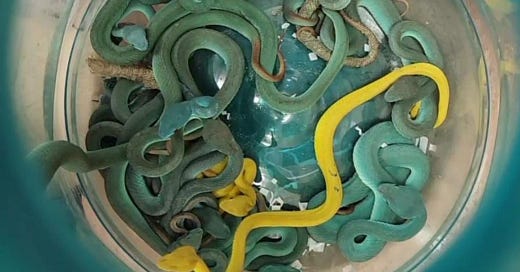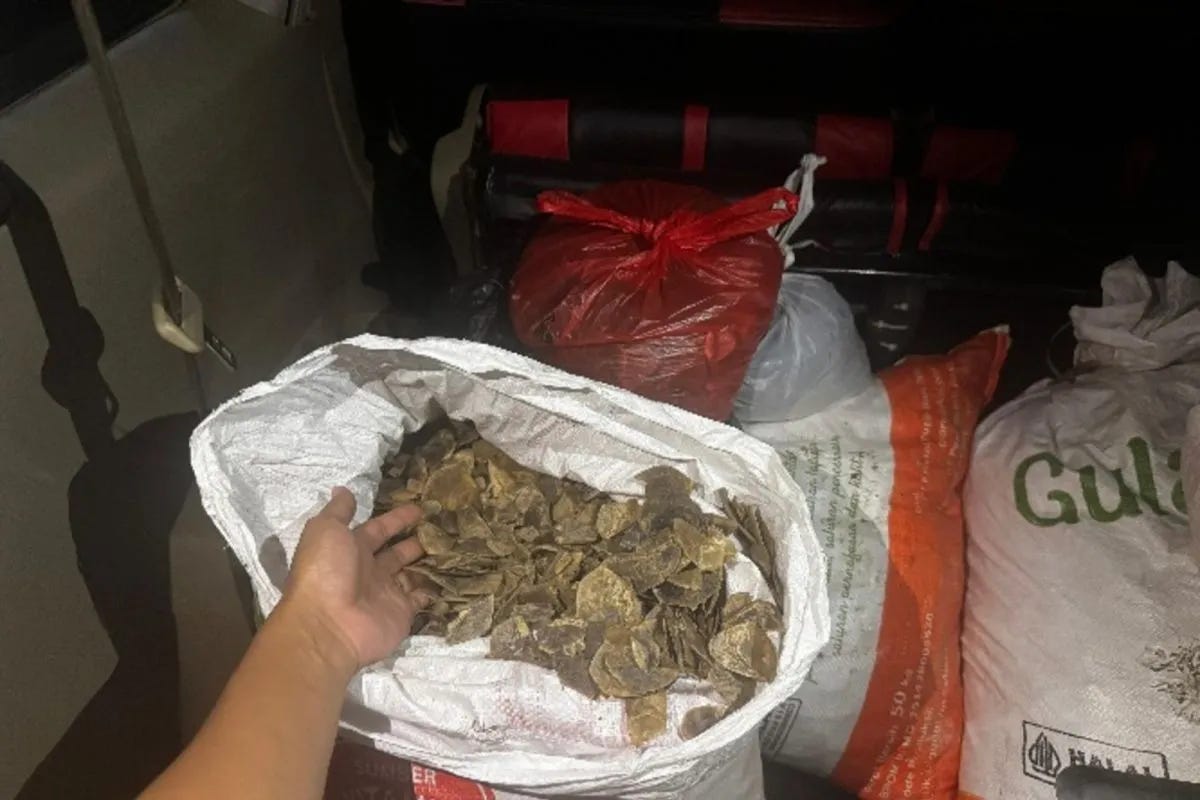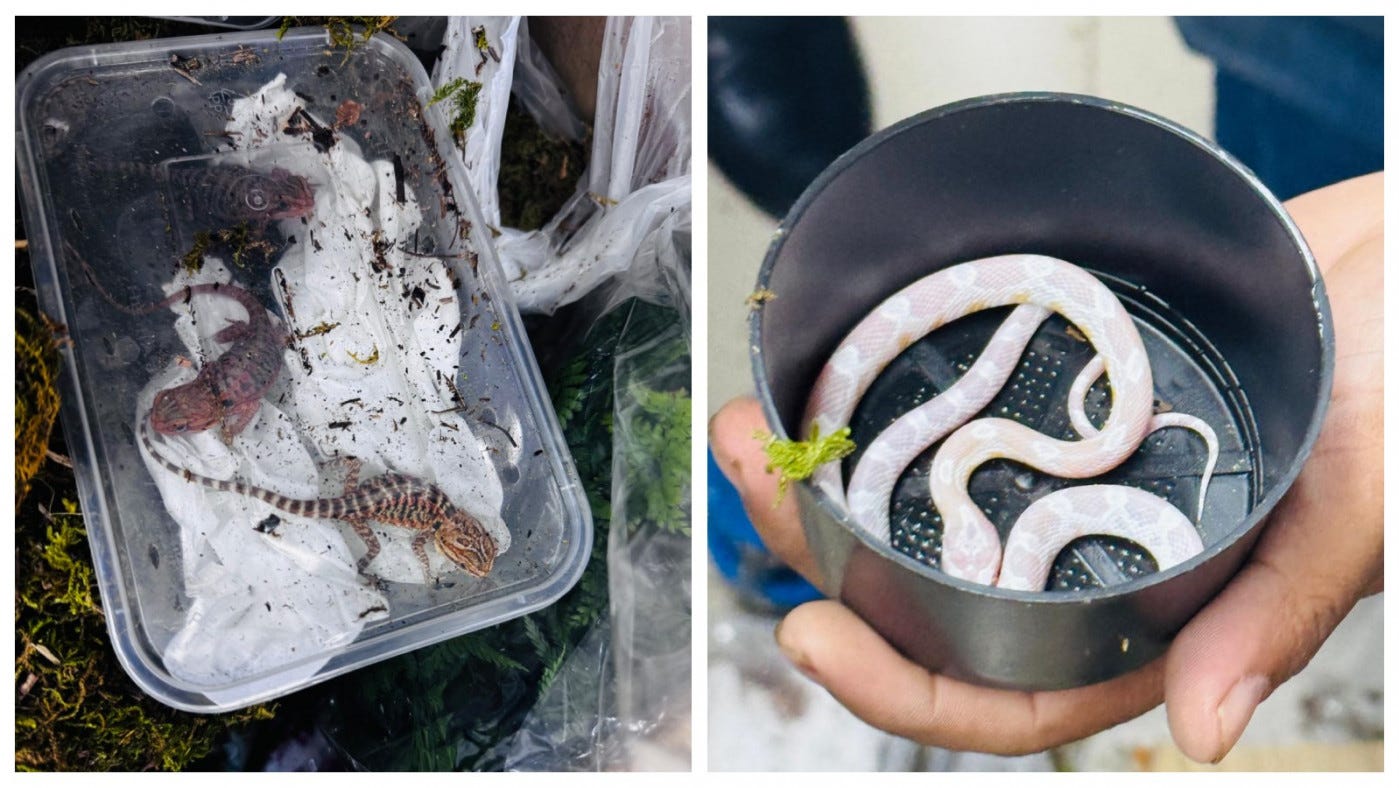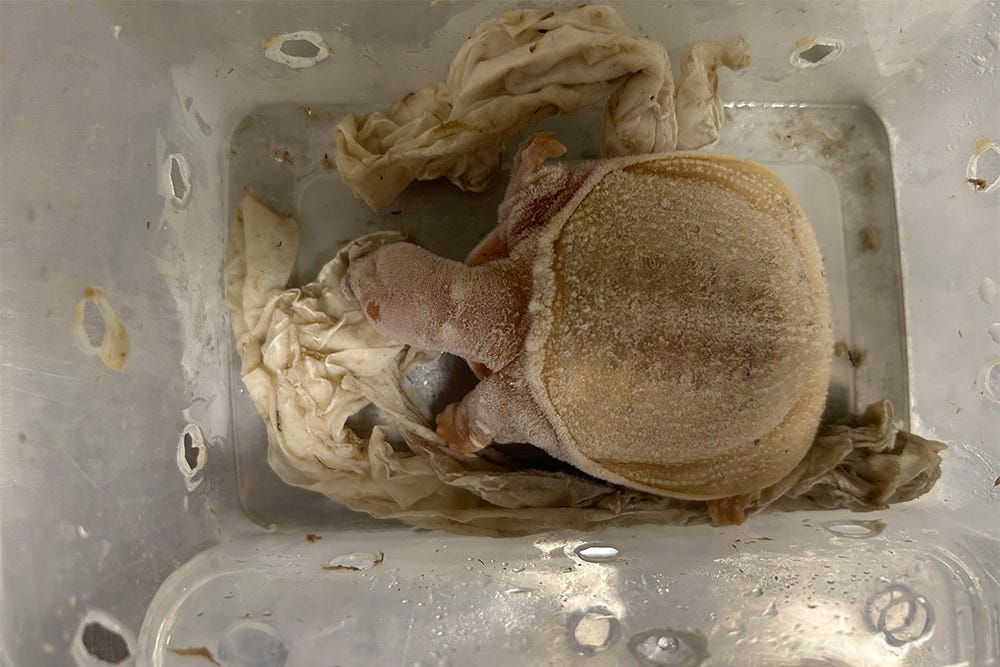The Wild Crime Report for Monday 2 June 2025
Exotic seizures across Asia, jail Down Under and Nigeria increases protections.
Welcome to your weekly update where I do my darndest to keep you informed across the wildlife crime landscape. This week gone included World Parrot Day where I found plenty of literature calling for the push to end exotic parrot ownership. Unfortunately, birds such as the Amazonian Macaw or African Grey continue to be in high demand for their glorious colours and signature sounds.
There are plenty of organisations leading the charge, probably none more so than the appropriately named World Parrot Trust. I’m sure they wouldn’t say no to a kind donation to help support programs that protect ecosystems or provide sanctuary to trafficked parrots that survive cruel and unsanitary conditions.
Now let’s get into some information.
Pangolin scales seized in Indonesia
An operation led by the Ministry of Forestry in Indonesia’s south end of Borneo resulted in the seizure of 80.5 kilograms of pangolin scales and the arrest of three suspects.
While not necessarily the largest seizure of pangolin scales we’ve reported on here, trade in Asian pangolin scales is often noteworthy given the lesser expected number of species found in Asia as opposed to Africa, suggesting the impact to local populations may be harsher.
Given the recent largescale pangolin seizures seen in Africa in the last year, keen young investigators should always look out for the chances of the pangolin scale networks shifting their focus to other regions. Kind of like in physics, crime also displaces.
Snakes on a plane
Whether inspired by the rather overhyped Samuel L Jackson vehicle or not, a nervous Indian passenger was stopped getting off a plane in Mumbai with 47 venomous snakes in his luggage. What a hoot that would have been for passengers on TG317 if they had gotten released around the cabin. Amongst the seized wildlife were Indonesian Pit Vipers, Spider Tailed Horned Viper and an Asian Leaf Turtle.
And if in reading this first paragraph you’d automatically assumed they’d come directly from Bangkok, Thailand then well done, you know your South East Asian illegal wildlife corridors well!
More reptiles from China to Bangladesh
Although just to mix it up, the reptile trafficking route between China and Bangladesh was also exposed this last week when Customs in Dhaka discovered a consignment of 23 wildlife species that had been flown from the southern city of Guangzhou. The varied collection was named in press as consisting of eight bearded dragons, one hognose snake, two corn snakes, one bandy-bandy snake, two Pac-Man frogs, three albino red-ear slider turtles and six alligator snapping turtles. And yes, I did have to look up “Pacman frogs” which are also known as South American horned frogs. In fairness, the nickname does fit.
Abandoned monkeys found in sacks
A far more sombre and darker affair occurred in Ratchaburi province of Thailand where officials from a wildlife sanctuary were alerted by members of the public to the distressed sound of what was described as child like cries. The officials soon discovered 25 macaques bound in sacks with cable ties and situated in a forested area about 200m from a main road. The saved macaques will now be relocated to the nearby Khao Prathap Chang Wildlife Sanctuary.
The monkeys were no doubt destined for a bleak future, quite likely due to the increased demand in macaques for medical research. Despite having some protections as CITES Appendix II species, the poor monkeys remain in demand for destination countries like China and the US.
This sort of incident really does beg the question as to just how transparent and legal the so called “legal monkey research market” actually is. Especially when it’s clearly already at stretching point. With technology in science improving you have to hope that this barbaric practice ceases.
Jail for importing reptiles into Australia
Usually within the illegal reptile trade in Australia its a problem of lizards and turtles going out. However, Australian authorities managed to thwart a smuggling racket of reptiles and other wildlife coming in from the Philippines and convict the perpetrator to 9 months imprisonment. Queensland man Jesse Sayeg was found guilty of importing snakes, iguanas, turtles and tarantulas in packages misdeclared as toys.
Australians love investigating incoming biosecurity hazards at the best of times and this operation was a multi-agency effort extended across two years and involving three states. Further species were discovered included hog nose snakes, more tarantulas, scorpions, African hedgehog and an alligator snapping turtle. Would make a great episode of Border Security!
New increased wildlife protection in Nigeria
Nigeria continues to show the world that despite the onslaught of wildlife trafficking that seems to prevail in the Giant of Africa, the country is committed to fighting the good fight. The National Assembly have finally passed the Endangered Species Conservation and Protection Bill (2024) which will go to the Senate where it’s expected to become law. The new legislation contains increased penalties for wildlife traffickers and will endorse greater functions to target wildlife crime, such as financial investigations.
Nigeria has been the ground zero for pangolin scale trafficking over the last 5-6 years largely for the key transit hub it presents for all of West and Central Africa. And despite the best efforts of investigators from law enforcement agencies and NGOs, it’s not going to be a problem easily stopped given the country’s busy shipping ports, close proximity to a variety of African biodiversity as well as having a booming and colourful city like Lagos prevail as a gangster’s paradise.
It’s always encouraging to see new laws and strengthened protections. But before everyone starts to pat each other on the back, just remember, it’s only a good law if you actually enforce it.
Stay wild.










